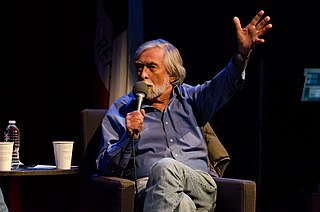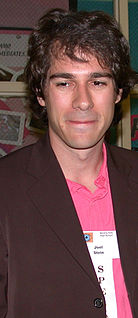A Quote by Robert Scheer
They know that the column resonates in the community. They know that people like it, and yet they don't have room for one column once week that consistently got it right.
Related Quotes
I had written a lot about my dog dying before. I wrote a newspaper column about it and it turned out to be the most popular column I'd ever written. That and the lame Joni Mitchell column I did. But the dog column, my god! People love dogs. Anybody who writes regularly should know, when in doubt: dogs! If you're a columnist, when in doubt, write a column about the culture of narcissism - like a scolding column about the culture of narcissism - or write something about dogs. That's the homerun in my take.
I started doing drag in Seattle because I started doing my column before I moved here, and then moved here and wanted to be able to go out and do things as Dan Savage without being recognized the next day, because the column was just in Seattle and it was kind of a sensation and I was beating people up. I was really worried and I didn't want to beat somebody up in a column and have that person know what I look like when I didn't know what they looked like.
Greek architecture taught me that the column is where the light is not, and the space between is where the light is. It is a matter of no-light, light, no-light, light. A column and a column brings light between them. To make a column which grows out of the wall and which makes its own rhythm of no-light, light, no-light, light: that is the marvel of the artist.
I got a letter one day from somebody saying, `You're always criticizing the press. Why don't you talk about what Clay Felker is doing to your own paper [The Voice]?' And my 10-year-old son Tom, now with Williams & Connelly, put in a legal opinion, not - an opinion from the back of the car saying, `You know why? What are you, afraid?' So I wrote the column. I - you know, - the column simply said that Felker is destroying this paper.





























